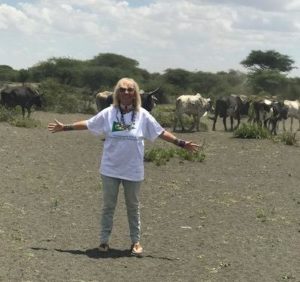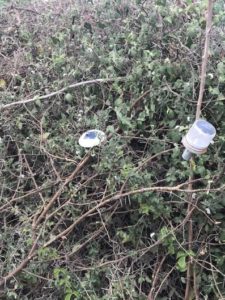https://www.cfact.org/2021/04/06/cfacts-lion-conservation-project-continues-to-grow-brighter/
The famous “king of the jungle” isn’t quite as mighty as he once was. Africa’s lion populations are under increasing threat as humans partake in “revenge killings” on lions after they eat villager’s livestock.
Yet CFACT is working with some great conservationists on a unique solution to this increasing problem.
As reported earlier, CFACT has embarked on a new project to prevent clashes between humans and lions in Tanzania and Kenya using a system of lights to keep lions away from livestock.
CFACT, partnering with conservationist Patricia Vaughn, is sponsoring initiatives  to install small lights on the perimeters of “bomas” (livestock pens). These lights strobe at night in a way that keeps the lions far from the livestock, thus helping both the humans and lions dwell harmoniously.
to install small lights on the perimeters of “bomas” (livestock pens). These lights strobe at night in a way that keeps the lions far from the livestock, thus helping both the humans and lions dwell harmoniously.
“We’ve done 15 bomas in Sinya, near the Kenya, Amboseli border,” Vaughn said. “We found a new area on the way to Wasso that has lion problems. We talked to the chief and they’re going to meet, then call us. We stopped at Engarasero, near Lake Natron, to check on their lights. They would like more but only hyenas are a problem.”
You can read more about the efforts here.
“We’re meeting with Loliondo Game Control in Wasso, on our way to Ololosokwan where lions get killed occasionally,” Vaughn continued. “Ololosokwan is right on the edge of the Serengeti and they are always being disturbed by wildlife.”
 Vaughn can only get some many lights in through customs at a time due to the high costs of importing them. As the program grows, CFACT and Vaughn hope to reach Ugandan villages with lights as well.
Vaughn can only get some many lights in through customs at a time due to the high costs of importing them. As the program grows, CFACT and Vaughn hope to reach Ugandan villages with lights as well.
“I only have enough lights left for about 25 bomas so I’m trying to find the ones who really need them,” Vaughn explained. “I know I’ll be doing at least 10 in the Ololosokwan area, so I don’t think I’ll attempt Uganda with so few lights.”
Vaughn and her team are traveling around Tanzania at the moment, meeting with villages and wildlife management authorities to determine where the lights are most needed. The trips can be time consuming, as the lions aren’t typically near more urban areas with airports or convenient transportation.
“Lions aren’t hanging out in towns, so we end up in very remote places.”
This project is a free market, innovative way to diminish the problematic clashes between lions and humans, without restrictive government mandates or rules that sometimes do more harm to the wildlife than good.
CFACT will continue to support Vaughn’s efforts and report on her team’s progress through Serengeti National Park and beyond.


